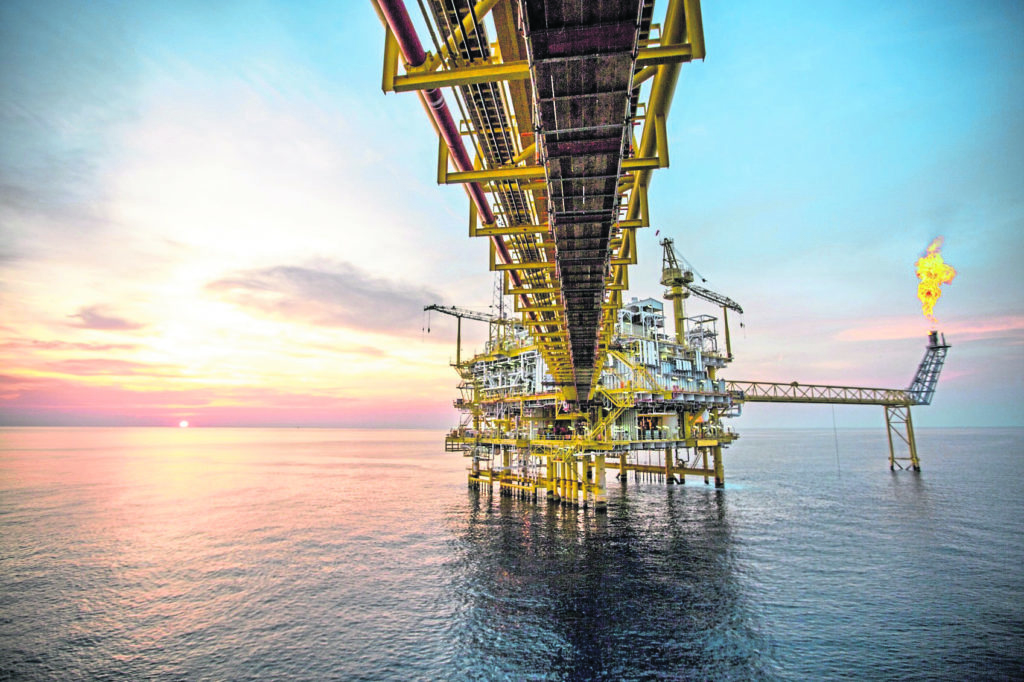
The North Sea oil industry must keep a lid on costs if measures taken by Opec and its allies push crude prices much higher, top Aberdeen energy experts have said.
Opec members and Russia agreed in December to reduce production by 1.2 million barrels per day and are now expected to extend the cuts by another six to nine months.
The cartel is trying to stabilise prices in the face soaring US shale production and a weakening outlook for energy demand growth in China and India.
Brent crude, the global benchmark, responded by rising 1.75% to $65.87 by 4pm yesterday, having earlier climbed higher than $66.70.
Marc Gronwald, senior lecturer in energy economics at Aberdeen University, said Opec was in a difficult position and did not want to “further risk its position in the global market”.
The Organisation of Petroleum Exporting Countries’ share of the global oil market has fallen to the lowest level since 1991.
Mr Gronwald also said it was “impossible to predict” whether Brent would go much higher, in light of an unsettled global geopolitical picture.
Worsening tensions between the US and Iran have created the conditions for added oil price volatility. The US has imposed sanctions on Iran and accused Tehran of attacking oil tankers.
But, on a more positive note, the trade war between the White House and Beijing appears to have cooled off.
The North Sea would benefit in the short term if Brent crude did return to a $70-80 price range, said Mr Gronwald.
But he said North Sea industry could not afford to let costs spiral at a time when it is competing with other basins and industries for investment.
A degree of inflation “may be inevitable” for resources which are scarce, such as staff, equipment and rigs, but the sector has already shown it can function in a cost efficient manner, he said.
A return of the “bad behaviours” and waste seen before the downturn struck in 2014 would not be well received by investors, he added.
Paul de Leeuw, director of Robert Gordon University’s Oil and Gas Institute, said any oil price increase stemming from the prolonging of production cuts was likely to be felts short term.
Mr de Leeuw said the market had already “factored in” the extension and that there had been “limited impact” on the Brent forward price curve, from 2021 onwards.
But he said recent crude price levels had been strong enough to support a “significant increase in new investment” in the UK North Sea.
He expects that trend to “continue of the foreseeable future”.
Mr de Leeuw said “stability”, and not crude price swings, would help North Sea oil companies as they strive to get to the front of the queue for fresh investment.
Asked whether Brent settling in the $70-80 range would be beneficial, he said: “Every $1 increase in the oil price, potentially yields more than £275 million for the operator community on an annual basis.”
But he agreed with Marc Gronwald that the sector had to show it had learned from the past and could avoid boom and bust cycles.
Mr de Leeuw said it was important to recognise the importance of the supply chain and make sure profits are fairly spread between operators and energy service companies.
“North Sea industry must carefully balance the need to manage costs in the basin with providing competitive margins in the supply chain,” he added.
Ross Dornan, market intelligence manager at Oil and Gas UK, said North Sea industry would “seek to remain competitive over a wide range of prices”.
Recommended for you

